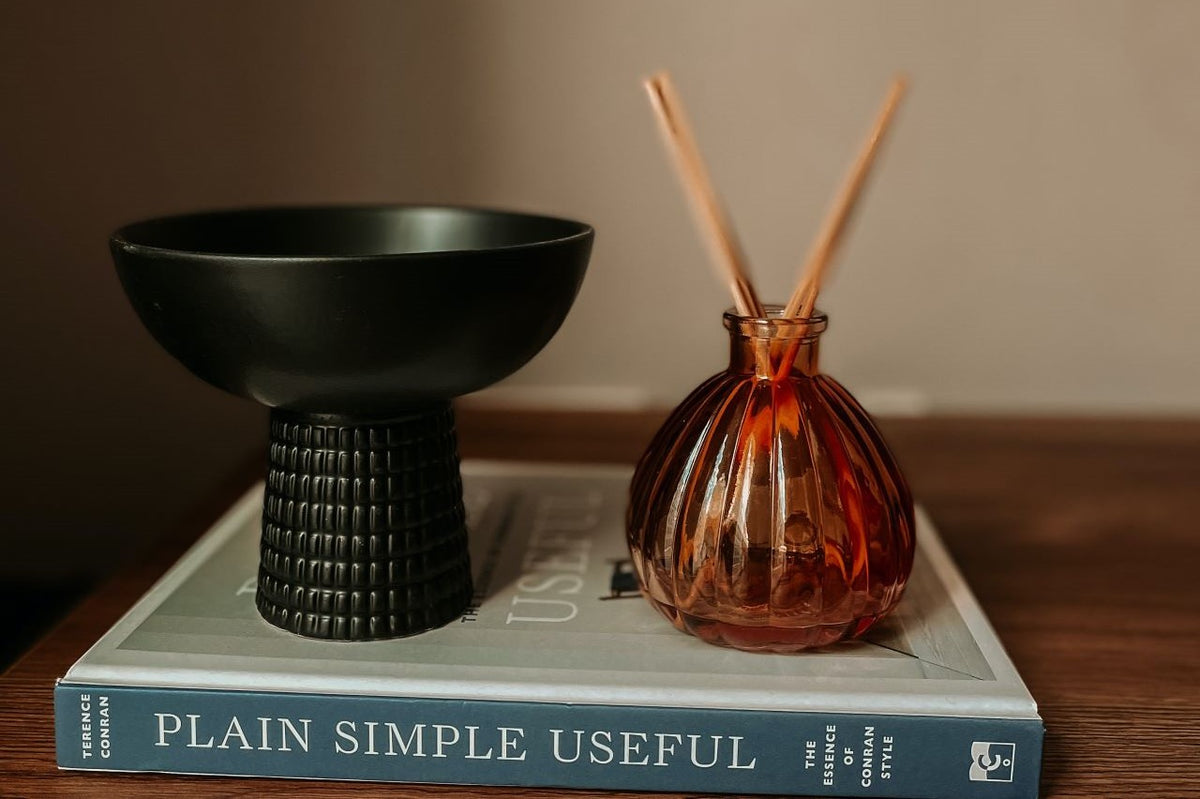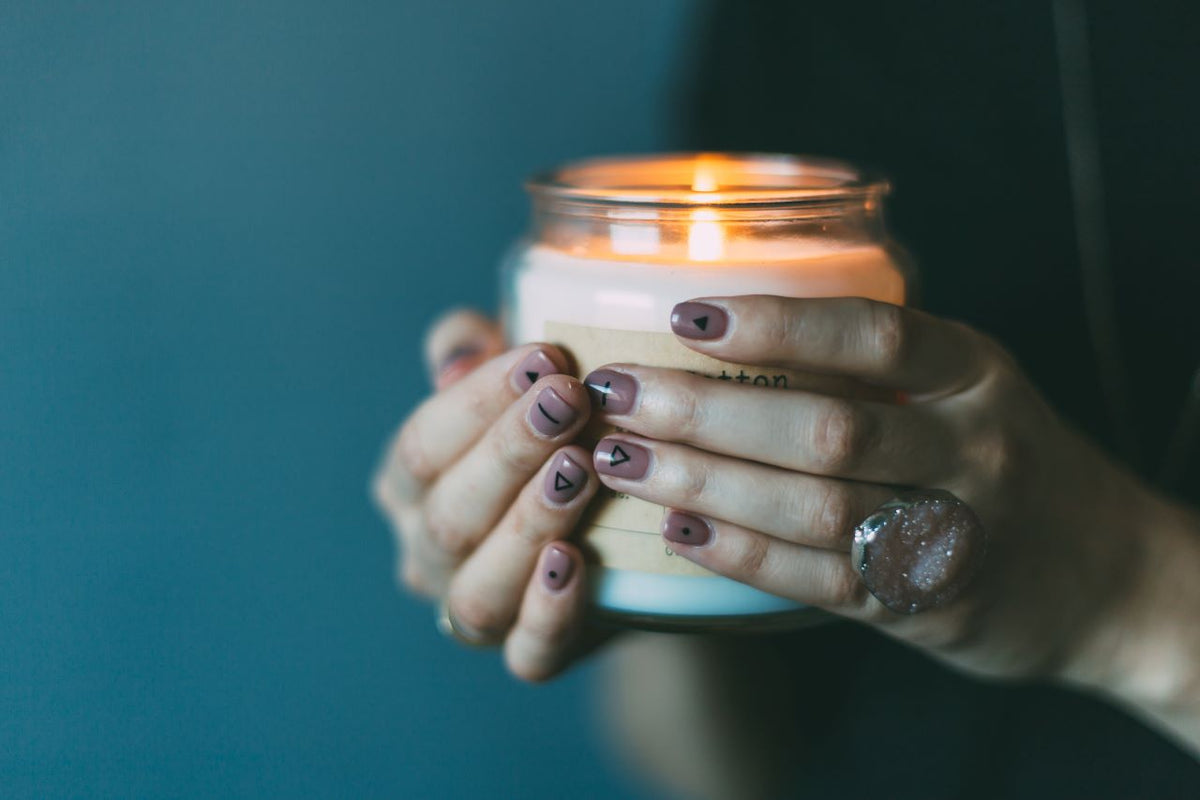Are Fragrance Oils Harmful In Candles?

Natural fragrances are created with essential oils extracted from plants, flowers or animals (musk). They can also be made from natural isolates that are odour molecules “isolated” from essential oils.
Synthetic fragrances also called "fragrance oils" are produced from man-made materials such as petrochemicals (petroleum-based chemicals).
Are Synthetic Fragrances harmful?
When we inhale through the nose, airborne molecules interact with our olfactory organs which send a signal to the limbic system in our brain which is the centre of emotions. But these molecules are also carried to the lungs. Therefore, they can affect our whole body.
Petrochemicals and their byproducts, such as dioxin, are known to cause many serious health problems, including cancer and endocrine disruption (interference with hormones within your body). Endocrine disruptors interfere with growth, development, intelligence, and reproduction. The damage can be irreversible and be passed on to future generations.
Synthetic fragrances also contain allergens and neurotoxins that affect the immune system and nervous system respectively.
Other ingredients of concern in fragrances are parabens, phthalates and synthetic musks.
Natural fragrances on the other hand are safe to inhale but only if they are diluted (for example in candles and perfumes) or if undiluted, you shouldn’t inhale an essential oil for a long period of time.
When I create new blends and use new batches from essential oils, I always test the strength of each oil by smelling them but I always make sure that I don’t inhale the oils for too long.
Synthetic Fragrances Are Endocrine Disruptors
Synthetic chemicals in products like fragrance oils mimic hormones and glands that regulate everything that our body does - the endocrine system. The endocrin system plays a major role in all phases of development, puberty, metabolism, and behavior.
The human being has a very small window when the brain and liver are made. When a hormone-disrupting chemical gets in the way during these windows, it can change the ways these processes happen. The change is often irreversible.
Are Essential Oils In Candles Toxic?
The safe and appropriate use of essential oils can bring great benefits to your health from promoting sleep, relieving headaches or anxiety or depression. However, because essential oils are highly concentrated plant substances when inhaled in their undiluted form, some oils such as Ylang Ylang can trigger headaches when inhaled. Also, many essential oils which are considered to be non-toxic can have a toxic effect on some people, based on their age group (e.g. babies, young children or older people) or medical condition (e.g. epilepsy). Some essential oils are dangerous to pets when inhaled in their pure form. They include anise, clove, garlic, horseradish, juniper, thyme, wintergreen, and yarrow.
Candles made with essential oils are usually scented with a maximum of 10-11% of essential oils so they are diluted and considered safe. When I make Petits Rituels candles, I have the responsibility to ensure that my candles not only offer a beautiful scent and the aromatherapy benefits of the oils I use but also that they are not going to have a long term negative health impact.
I also publish on my website a full description of their ingredients including the essential oils (and whether they're organic or not) so that people who could have an allergic reaction to them are well informed.
Oxidation of essential oils make them toxic, so good aromatherapy candles are expertly blended and wicked to ensure that they burn at an ideal temperature so no oxidation occurs while diffusing the room with their beautiful scent.
Why Do Most Candle Companies Use Synthetic Scents?
Around 75% of scented candles are fragranced with artificial scents because they cost considerably less.
Also, candles made with both paraffin wax and fragrance oils (synthetic fragrances) tend to be easier to produce when it comes to giving off a good hot scent throw. The hot scent throw is the strength of the aroma from the hot melted wax, while the cold scent throw is the strength of the aroma when the candle is unlit and the wax is cold.
The Problem With Candle Labeling
The fragrance industry is protected with trade secrets and is permitted by ECHA, the European Chemicals Agency to withhold fragrance ingredients, so consumers can’t rely on labels to understand potential health hazards that may lurk inside their perfume bottle or scented candle.
But all is going to change soon with the new EU Regulation on Classification, Labelling and Packaging where manufacturers of chemical mixtures will be required to provide a label that includes a harmonized signal word, pictogram, and hazard statement for each hazard class and category.
So next time you buy a candle, make sure that your candle is made with 100% natural wax and essential oils. And don’t get confused with the term “fragrance oil” which is not the same as “essential oil” and actually means “synthetic fragrance”.
Even when you’re buying a luxury candle, you are probably paying for expensive packaging and branding, and your favourite scent is potentially toxic or even carcinogenic.
I love the natural aromas of essential oils because natural scents are so much more “beautiful” than artificial fragrances. Once you’ve trained your nose to natural aromas, you’ll never want to get back to artificial fragrances/candles!
Which do you prefer? Natural or synthetic fragrances? Maybe you’ve never tried naturally scented candles before? I’d love to hear your thoughts.






Nathalie Allard
Author
Nathalie Allard is an Artisan Perfumer and the founder of Petits Rituels. She’s known for creating beautiful room-transforming 100% natural fragrances with real therapeutic benefits.